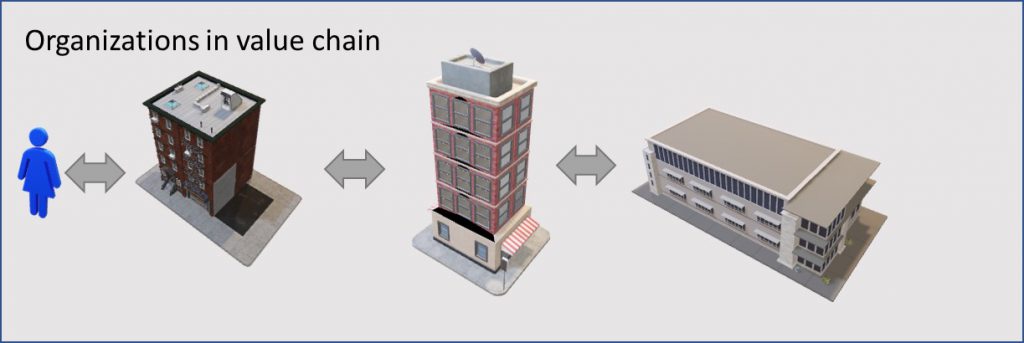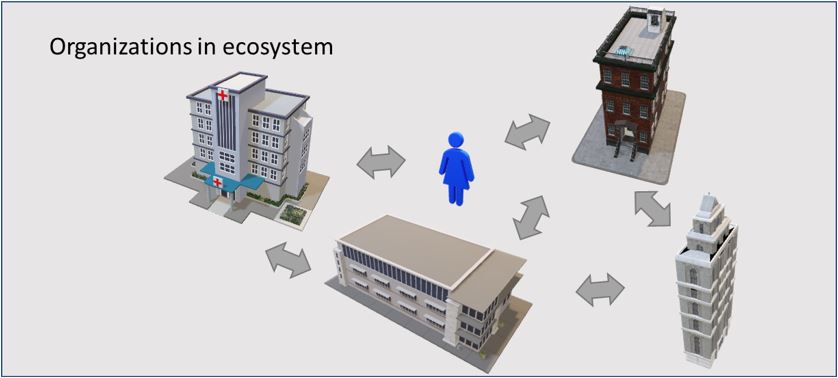THE ECOSYSTEM IS THE NEW ORGANIZATION
February 25, 2019
The ecosystem is the new organization – Sociological and psychological thresholds are crucial
In current society, there is continuous data exchange between individuals and organisations, between individuals, within organisations, and between organisations. Looking at organizations as demarcated closed entities becomes outdated. They develop towards organic open networks, where each party has its own role. Networks which are gradually evolving in time: ecosystems. A technology like blockchain forces organizations further in this direction. However, there are thresholds to overcome which are mainly of sociological and psychological nature.
Traditional thinking in value chains becomes increasingly obsolete. The same goes for silos within organizations. The development of agile organizations enforces these silos to disappear. Boundaries, both within as between organizations, are disappearing.

Blockchain seems to strengthen this development. After all, it makes little sense to implement a blockchain solution as an individual organisation. Only when multiple organizations register transactions in a shared registry, the added value of blockchain becomes clear. Capturing one version of the truth is possible and useful then. Examples:
- A patient record in which all the practitioners of a patient register their actions;
- A subsidy register in which government-provided subsidies are recorded to farmers as earmarked money;
- A business register in which entrepreneurs can register themselves directly and any interested person can consult;
- A supplier-independent energy register in which the delivery and reduction of energy is recorded real time.
The list of potential use cases is endless.
None of the above solutions can be organized by just one organization. By definition, several organizations and individuals are required. Blockchain technology therefore forces organizations to truly think and operate in ecosystems.
The challenges of implementing this type of solutions are, apart from technically, mainly organizational, sociological and psychological in nature. Traditional thinking in demarcated organizations hampers thinking in ecosystems. People are not very good at “suddenly thinking differently”. Very practical: we are employed or hired by an organization, not by an ecosystem. We think and we act in the interests of our client. In addition, power plays an important role. An organization with a central position in a relatively closed system requires a lot of courage to open up the system. People and organizations do not have that tendency by nature. Rational arguments hardly change that.
When transforming value chains into ecosystems, several questions come up:
How is ownership of the data regulated? Who designs the architecture for the ecosystem? What platform are we going to use and who owns it? Who will be the initiator and manager of the change? Who will deliver resources and people? What will be the revenue model? An organization may be part of multiple ecosystems; how do we deal with that?
These questions are particularly relevant because an ecosystem lacks a leading central organisation. We are not used to that.

As long as we keep thinking from the perspective and in the interest of our own organization we will not get the answers to these questions. Existing organizations will have to dare to look at new forms of cooperation, accepting that their dominant position may disappear.

 English | EN
English | EN 